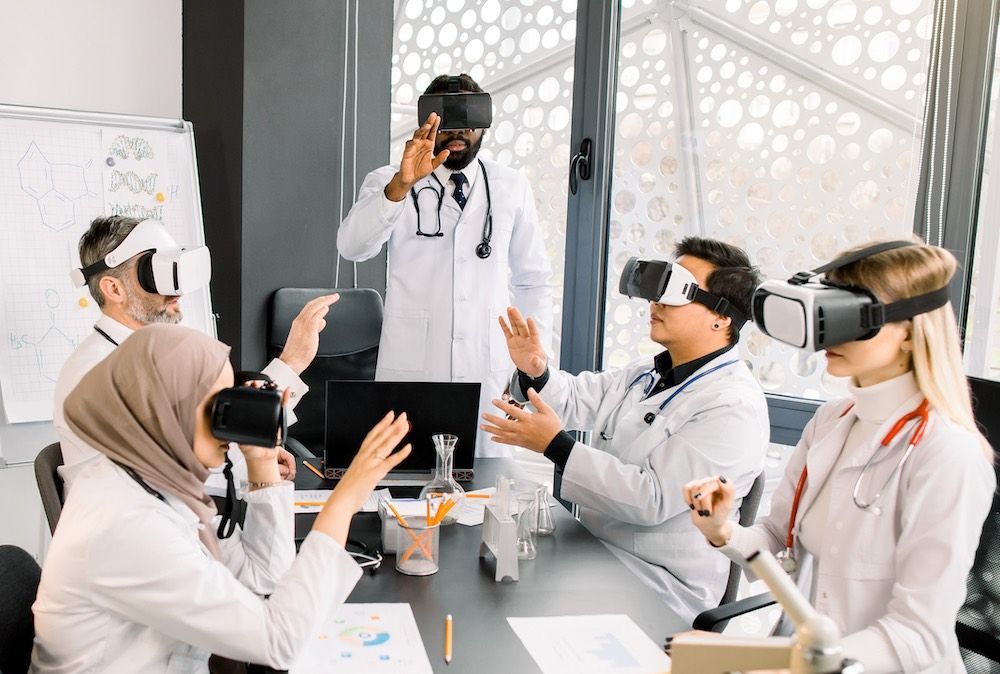A crucial element in healthcare education and professional development is the importance of instructors to meet the specific needs of clinical simulation participants in their experiential learning experience. The development of a safe and controlled environment means that healthcare simulation allows participants to practice and refine their skills through clinical simulation experience. However, to ensure the effectiveness of clinical simulation-based education, there is an essential need to meet the diverse educational needs of all participants in attendance. In this article written by Erin Carn-Bennett, MSN, RN, there will be an exploration of key strategies to meet the needs of all participants in attendance of healthcare simulation-based education.
Designing the Healthcare Simulation Experience
Before designing a healthcare simulation education program, include an assessment of the participants’ prior knowledge and skills. The performance of a previous knowledge assessment will help to identify potential knowledge gaps and common topics requested to help decide what scenarios to run in the clinical simulation education. The information provided will assist to tailor the clinical simulation education program. Through assessment of prior knowledge and awareness of the participants’ baseline competencies, instructors can provide targeted instruction and ensure that the education meets their specific needs.
Each participant that attends healthcare simulation education brings a unique set of learning objectives. Through customisation of the learning objectives as possible through prior assessment of learning needs, instructors can address individual needs and ensure that the clinical simulation aligns with the participants’ learning needs. This approach fosters engagement and motivation, as participants feel the clinical simulation is directly relevant to their practice.
Suppose the instructors could only assess learning needs after the design of the clinical simulation course. In that case, this can be accomplished informally in the introduction phase of the course. Adult learners like to know the timetable for the day to assist with preparedness to learn. Another useful part of the introductions phase of the clinical simulation is when instructors and participants introduce themselves. Ask the participants to introduce themselves and explain what they want from the clinical simulation course. As instructors pay close attention to and write down this information. This information can be used as a learning needs analysis of where to focus the education for the clinical simulation scenarios.
Participants have different learning styles and preferences, so healthcare simulation education should involve a variety of learning opportunities and strategies. This may include several scenarios that offer participants experiential learning opportunities in clinical simulation with various roles and different cases. The offer of diverse learning experiences means participants can engage with the material in a way that suits their individual learning styles. This may also include didactic elements to the education session to meet some learners’ needs.
Active participation in experiential learning is crucial to effective education in healthcare simulation. Instructors should encourage participants to actively engage in the scenarios by asking questions, participation in discussions, and interaction with hands-on opportunities as possible in their clinical simulation. This approach increases learning for participants in critical thinking, problem-solving, and decision-making skills, which are then translated into real-life healthcare scenarios.
Debriefing is a Crucial Component of Clinical Simulation
Instructors should also trust that although participants may not participate in the debrief or speak up in the clinical simulation scenarios, as adult learners, the learning still occurs through many different means. Management of participants that dominate in scenarios and debriefs can also be tricky to balance. Facilitators are reminded to listen to what is not finished for participants and guide the conversation to assist in the completion of issues for participants is essential. Try to be patient and kind with participants and trust the adult learner and the process of the scenario through to the end of debrief.
The debrief plays a vital role to ensure that needs are met for participants in healthcare simulation education. Instructors should guide debriefs as a conversation to provide each participant with the opportunity to reflect on highlights and strengths identified in the scenario. This allows participants time and space to voice areas for improvement for next time. The debrief helps participants to reflect on their performance, identify areas for growth, and make necessary adjustments to their practice to translate into real-life clinical care improvements. Instructors should create a supportive and non-judgmental educational environment for clinical simulation that encourages participants to feel safe to voice and learn from their mistakes.
To effectively meet clinical simulation participants’ learning needs, healthcare simulation education should incorporate realistic scenarios that mirror real clinical cases. Clinical simulation should be as authentic to patient encounters as possible. Participants can develop and refine their clinical skills in a safe and controlled environment, especially when the realism and fidelity of the clinical simulation are to a high standard. Realistic scenarios also help participants build confidence and enhance their ability to handle complex situations for their patients, and hone teamwork skills in a safe environment. To ensure psychological safety, ensure that a decent amount of time has passed before the use of a real case in a clinical area.
At the end of a clinical simulation course, obtain feedback from participants to know if the needs of the participants have been met. Allow for some free text feedback anonymously. Review the anonymous feedback as a group after the course and review how future courses will be altered based on the feedback provided.
View the HealthySimulation.com LEARN CE/CME Platform Webinar Beyond Psychomotor Skills in the Sim Lab: How Do We Foster Clinical Judgement? to learn more!
To meet the needs of all participants in healthcare simulation education requires a lot of responsibility as a healthcare simulation instructor. This is a critical skill to meet the needs of all healthcare simulation participants. Assessment of participants that attend clinical simulations, prior knowledge, customization of learning objectives, varied learning opportunities, facilitation of active participation, offer of timely feedback, and incorporation of realistic scenarios; instructors can create a comprehensive and impactful education experience. As an instructor, the ability to meet individuals’ needs through healthcare simulation can empower participants to enhance their skills, improve patient care, and contribute to the advancement of healthcare practice.
Learn More About Increasing Learner Participation in Healthcare Simulation!








